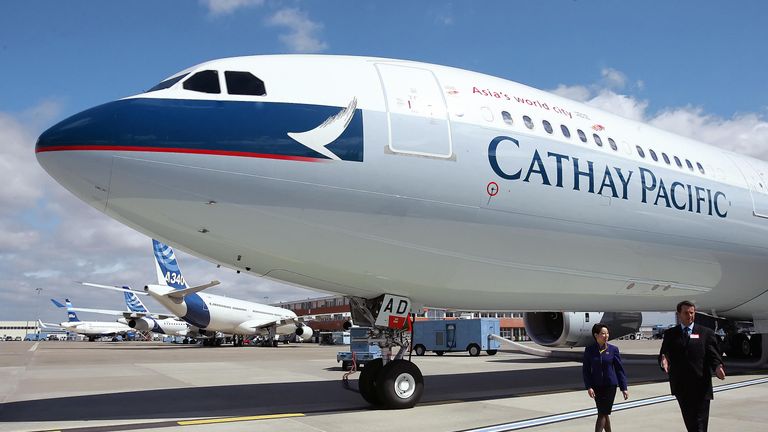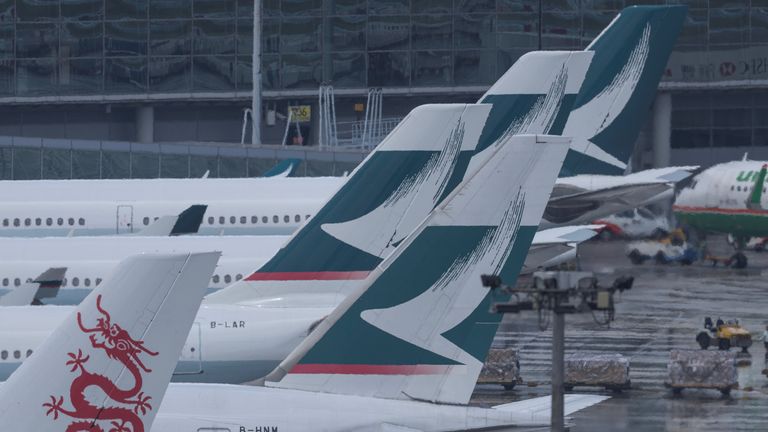Cathay Pacific shares fall to decade low over protests in Hong Kong
China's aviation authorities ordered airline to suspend staff that supported pro-democracy protests
Monday 12 August 2019 16:05, UK
Shares in Cathay Pacific Airways fell to a decade low after being caught up in the ongoing demonstrations in Hong Kong.
Pro-democracy protests in the Asian financial hub have risen to be one of the biggest popular challenges to Chinese President Xi Jinping since he came to power in 2012.
The airline was ordered by Beijing's aviation authorities to suspend staff that supported what China claims are illegal protests in Hong Kong.
Civil Aviation Administration of China (CAAC) said the airline must not fly into its airspace with such staff, citing safety concerns.
Cathay Pacific quickly complied with demand by suspending a pilot arrested during anti-government protests and firing two airport employees for misconduct.
The company also said it would not have "overly radical" staff onboard flights to the mainland.
Financial analysts said China's demand, along with the impact from the protests, could affect the airline's bottom line.
Jefferies analyst Andrew Lee said: "Not only is this likely to affect direct China flights, but also flights to Europe and, to a lesser extent, to the U.S., given that they fly over China airspace."
China's flagship carrier, Air China Ltd is Cathay's second largest shareholder with a 30% stake.
Cathay Pacific chief executive Rupert Hogg has reportedly told staff the company would report to the CAAC on how it would improve flight safety and submit crew lists in advance of flights to the mainland.
The company said in a statement: "The only difference is that such information is being sent earlier than in the past in advance of all operations in mainland China."
A union representing the airline's employees has criticised the regulator.
The Hong Kong Cabin Crew Federation said CAAC should have "respected Hong Kong people's rights and freedoms" on the basis of the "one country, two systems" principle, which guarantees the former British colony a high degree of autonomy from Beijing.





